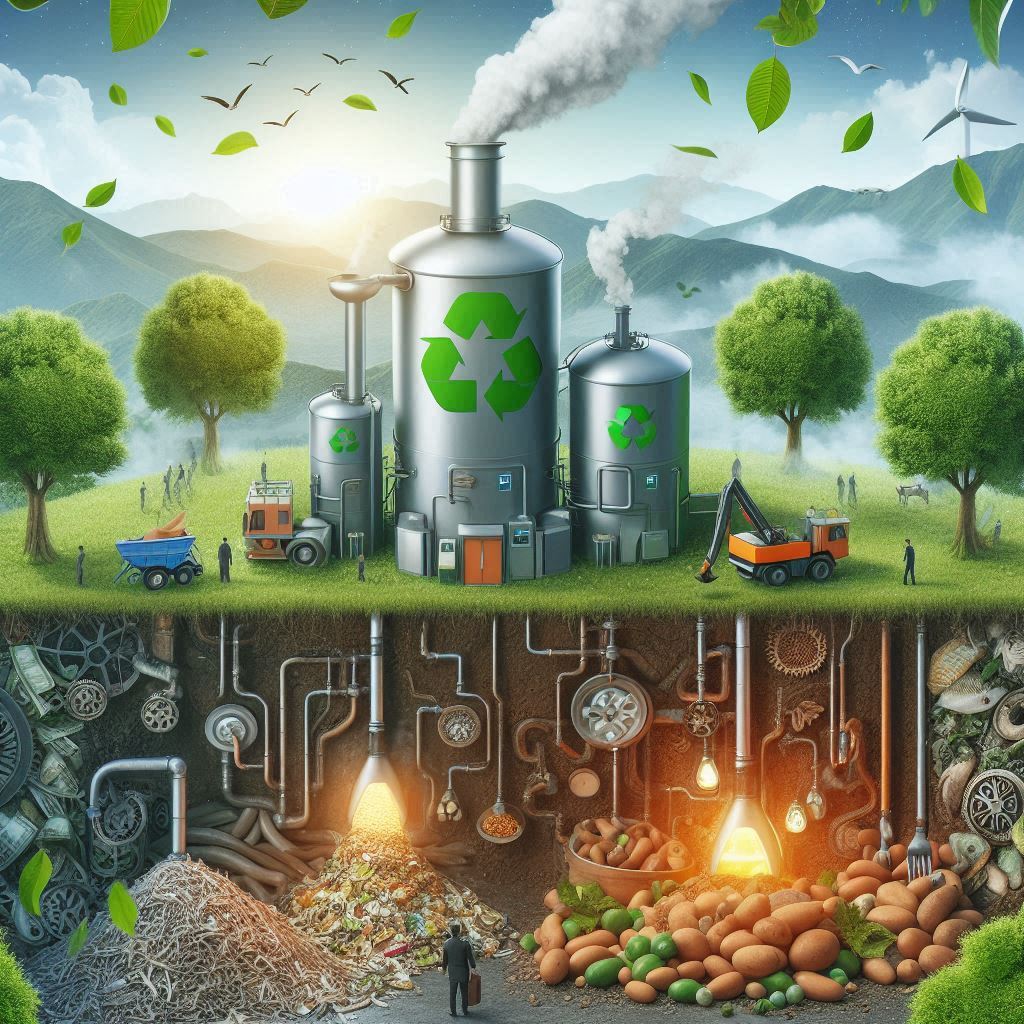

The energy demand continues to soar daily, and the traditional sustainable alternatives – fossil fuels- are no longer enough. The growing fossil fuel consumption not only hurts India’s fiscal budget but also puts a growing climate change accountability. As per recent reports, road transport accounts for 12% of India’s energy-related CO2 emissions and is a key contributor to urban air pollution. However, in recent years, compressed biogas has stood out as a promising alternative in sustainable energy. And from environmental to energy security, biogas offers a myriad of benefits. Biogas generation helps reduce reliance on fossil fuels, improves water quality, and reduces the incidence of waterborne diseases.
Commenting on the present scenario of CBG, Rajaram Prajapati, Director and CTO of CEID Consultants and Engineering Pvt Ltd says, “Building a CBG manufacturing plant in India can offer numerous benefits including enhancement in waste management, promotion of local energy production and many more. And looking at the alarming scenario of the environment, it has now become more than important to look for an alternative which is not only sustainable but also can manage the increasing waste efficiently. Today, with every tonne of CBG produced, about 0.5 tonnes of CO2 is also generated, which is presently wasted and leads to greenhouse gas emissions and there is an urgent need to capture this CO2 and utilise it for high-end applications.”
Environmental Benefits of Biogas
The anaerobic process of decomposition (or fermentation) of organic matter has been happening in nature for millions of years, even before fossil fuels, and continues to happen all around us in the natural world. Therefore, today’s industrial conversion of organic waste into energy in biogas plants is simply fast-forwarding nature’s ability to recycle its useful resources.
Studies show that every year humans generate over 105 billion tonnes of organic waste. However, today only 2% of organic waste is treated and recycled. Biogas not only serves as a renewable energy source that can replace fossil fuels but can also be used to generate renewable energy sources that can replace fossil fuels which can have a positive impact on the overall environment in the long-run.
Organic waste such as food scraps, agricultural residues, and animal manure produces methane when decomposed in landfills, a potent greenhouse gas that is over 25 times more effective at trapping heat in the atmosphere than carbon dioxide. Therefore by converting this waste into biogas, methane emissions can be captured and utilised as a renewable energy source instead of being released into the atmosphere.
Additionally, the by-product of biogas production, known as digestate, is rich in nutrients and can be used as a biofertilizer. This promotes sustainable agriculture by recycling nutrients back into the soil, enhancing soil health, and reducing the need for chemical fertilizers.
Economic Benefits
Converting waste to biogas holds immense potential for stimulating economic growth across India. The first and foremost benefit is the range of employment opportunities the entire biogas industry will create. The biogas sector creates numerous employment opportunities across the value chain, from waste collection and plant operation to maintenance and distribution. This stimulates local economies and contributes to overall economic growth.
Furthermore, recent research estimates that India will need around 55,000 skilled plant designers and site engineers, 200,000 semi- and low-skilled workers for construction activities, 10,000 highly skilled engineers to oversee administration, data monitoring and critical operations and 150,000 unskilled workers to carry out routine plant operation and maintenance.
Biogas production enhances energy security by providing a local and renewable source of energy. This reduces dependence on imported fossil fuels, leading to substantial savings on energy costs. By converting waste into a valuable resource, municipalities and industries can generate additional revenue streams. The sale of biogas and digestate can offset waste management costs and create new business opportunities. Additionally, biogas can provide a cost-effective energy solution for industrial processes and public utilities.
Social Benefits
Effective waste management through biogas production reduces the proliferation of pests and pathogens associated with unmanaged waste. In rural areas, where waste disposal and energy access can be challenging, biogas provides a sustainable solution. Farmers can utilize agricultural residues and manure to produce energy and fertilizer, enhancing agricultural productivity and supporting rural development.
Also, establishing CBG plants often involves contribution and participation of numerous communities. This not only increases sustainability but also raises awareness among people about the significance of sustainable practices.
Authored By Rajaram Prajapati
In a significant move toward advancing green energy and industrial growth in the state, Himachal…
Golabl chemical conglomerate BASF has announced that its now offering the world’s first biomass-balanced polyethersulfone…
In a crucial stint to bolster the biogas sector and sustainable dairying in the country,…
TotalEnergies SE has received approval to proceed with its Middlebrook solar and battery project in…
Andhra Pradesh Chief Minister Chandrababu Naidu has inaugurated the Rs 1,000-crore green hydrogen plant of…
The BITS Pilani has developed an innovative solution for managing landfill leachate, domestic septage, and…